Sick, sniffly kids rarely have much of an appetite … but if you do manage to coax them to eat something, try these foods for starters. These eats can actually alleviate the symptoms of colds, flus, and other ailments in a drug-free, all-natural way. So stock up on these sickness-busting munchies to make your kids a bit more comfortable and get them on the road to wellness.
Wow, who knew food #4 was good for headaches?
Image ©iStock.com/wojciech_gajda
For Flu: Ginger
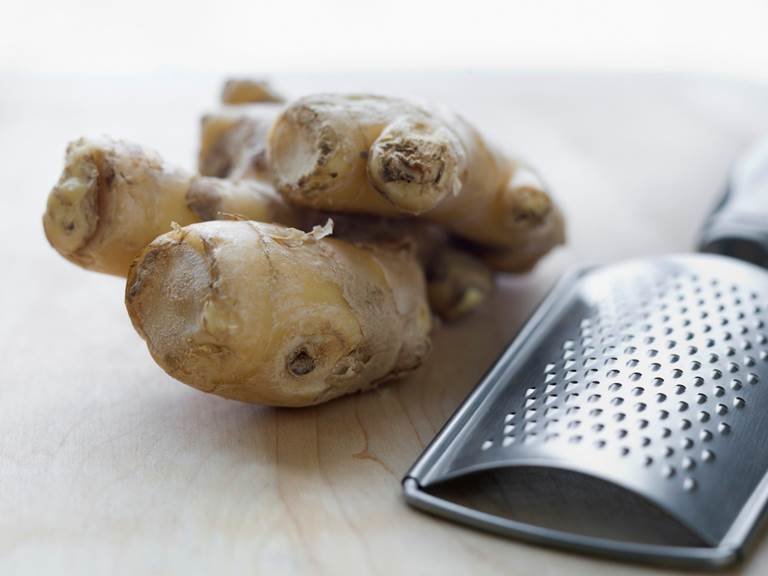
"Research has shown that ginger is incredibly effective at preventing and soothing nausea and other gastric ailments," says Rene Ficek, RD, Lead Nutrition Expert at Seattle Sutton’s Healthy Eating.
For Flu: Eggs and Dairy

"Protein is important for repair and growth of body tissues; however, we lose taste for it when we have the flu," says Ficek. "The most easily digestible protein is an egg, and yogurt is a double-duty food: it's a good source of protein as well as probiotics."
For Headache: Swiss Chard
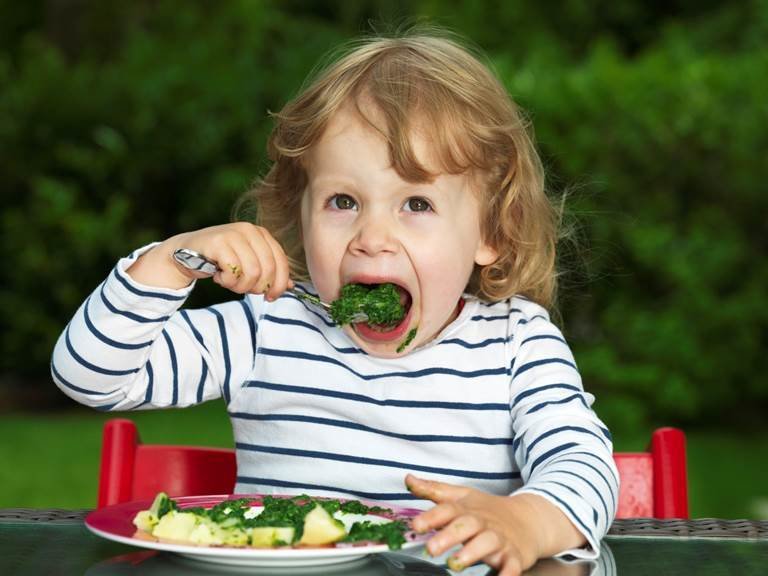
"Foods high magnesium are helpful with calming nerves when they get overexcited like they do with a headache," says Ficek. Other foods high in magnesium include spinach, sweet potatoes, bananas, and sunflower seeds.
For Headache: Salmon
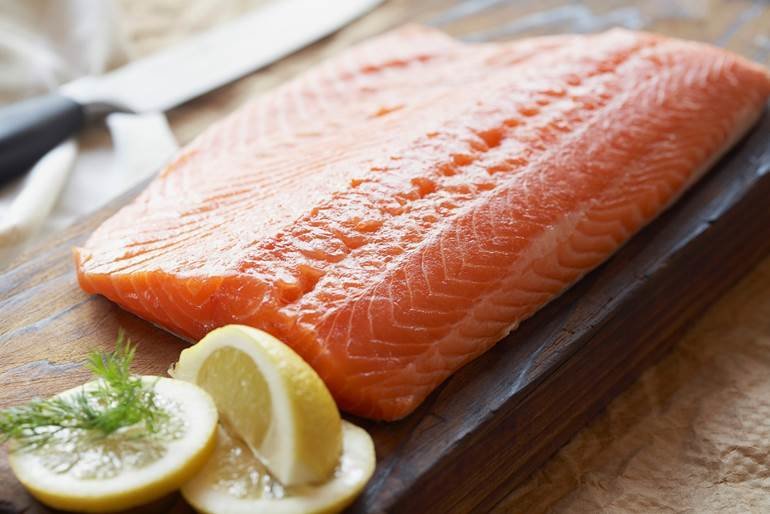
"Salmon has anti-inflammatory properties," says Ficek. "This can reduce the pain of headaches."
For Sore Throat: Honey

Taken in tea or just by the spoonful, it's all good. "Honey will coat the throat and help in preventing irritation, which is the main reason behind coughing fits," says Ficek.
For Strep Throat: Ice Cream and Popsicles

"Very cold foods such as sherbet, frozen yogurt, or frozen fruit pops can be soothing," says Ficek. We doubt your kid will complain about eating them, either!
For Upset Stomach: White Rice
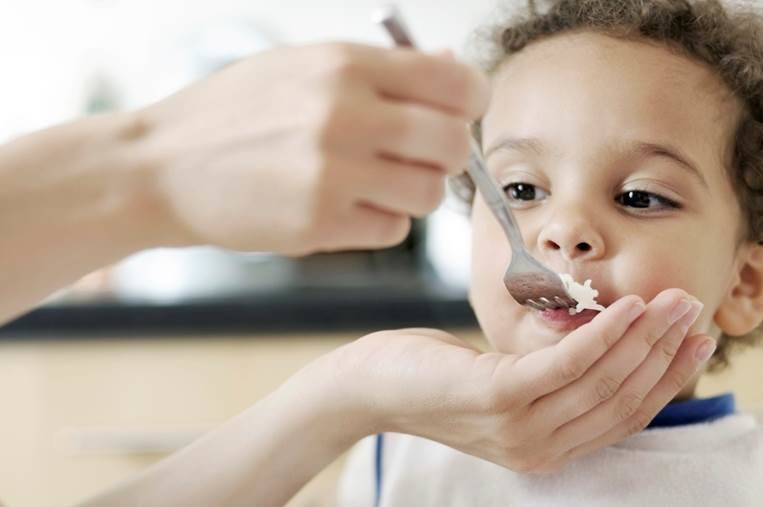
When your stomach is feeling topsy-turvy, it's a good idea to stick to bland, white foods like rice, toast, or boiled potatoes. Besides not putting added stress on an already sensitive digestive system, these foods help ease diarrhea by absorbing fluids and adding bulk to your stool.
For Vomiting: Sports Drinks
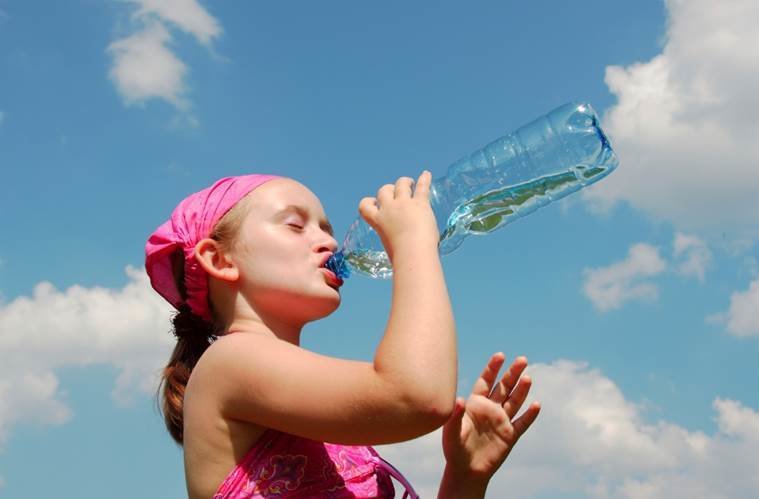
"Vomiting can lead to dehydration," explains Ficek. "Sports drinks help to maintain proper absorption because they contain electrolytes." You can also try flat soda or pediatric electrolyte solutions, but avoid milk, caffeinated or carbonated drinks, and fruit juices — particularly citrus juices and sugary drinks, says Shanti Nair, MD, a pediatrician at Loyola University Health System.
For Vomiting: Crackers and Toast

"Plain, unsalted, or lightly salted crackers and toast are simple, bland foods that are easy on the stomach," says Ficek. "These high-starch foods can help stabilize digestion, which is especially helpful after vomiting."
For Diarrhea: Bananas

"Bananas are rich in potassium, which is often depleted during bouts of diarrhea," says Ficek. This fruit also contains pectin, which helps to naturally firm bowel movements.
For Colds: Citrus Fruits

Oranges and other citrus fruits are packed with the cold-busting vitamin C. "This vitamin can reduce the length or severity of colds," says Ficek.
For Colds: Chicken Soup
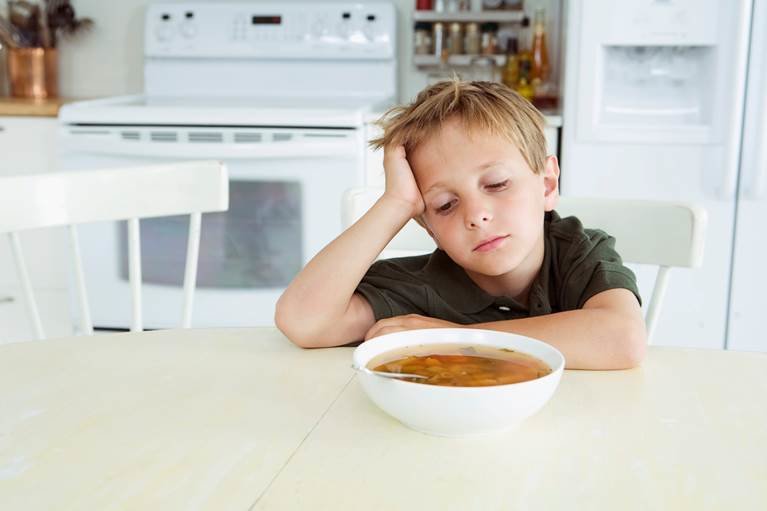
"Chicken contains an amino acid called cysteine, which helps thin mucus in the lungs," says Ficek. "And the hot broth helps to keep nasal passages moist, prevent dehydration, and fight inflammation in the throat." Avoid too much milk, ice cream, or cheese as they worsen mucus problems, says Shanti Nair, MD, a pediatrician at Loyola University Health System.




